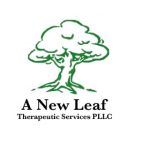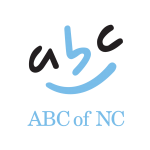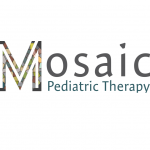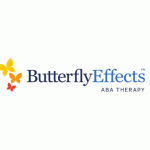Public & Professional Relations
The NCABA Committee on Public and Professional Relations is a standing committee of NCABA, as outlined by the organization’s bylaws. The current goal of the committee is to establish a Public and Professional Relations Fund. The fund will provide legal fees for NCABA’s attorneys who will be tasked with:
– Seeking clarity from the Department of Insurance, Medicaid, the legislature, the NC Psychology Board, and/or other regulatory bodies to understand G.S.§58-3-192 and whether supervision by a psychologist is required to practice behavior analysis in NC. If supervision by a psychologist is required, clarify the structure and nature of the supervision and the specific limitations of practice.
– Identifying any other avenues that could provide clarity around BCBAs rights to practice and their status as professionals.
– Determining whether licensure is a plausible path towards independent practice by BCBAs in NC. If licensure is a feasible/recommended path, funds may be used for lobbying expenses.
– Clarifying the regulations of the practice of behavior analysis to aid companies in recruiting employees; establishing appropriate organizational structure; and budgeting for supervision, if necessary.
Sponsors
Thank you to all who have donated to the Public & Professional Relations Fund.
Platinum Level ($10,000 +)
Gold Level ($5,000 – $9,999)
Silver Level ($2,500 – $4,900)
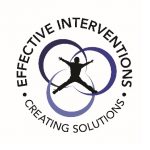

Bronze Level ($1,000 – $2,499)
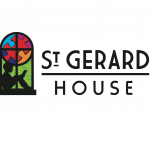
– Solving Autism, LLC
Frequently Asked Questions (FAQs)
View the answers to each of the frequently asked questions below by clicking on the + in front of each question
1. What is the goal of the NCABA Committee on Public and Professional Relations?
The current goal of the committee is to pursue fundraising in order to support the efforts outlined in the motion that was passed by NCABA membership during the 2018 annual business meeting:
The membership hereby authorizes the Board to retain legal counsel for the purpose of providing advice, counsel, and representation, including, if necessary, pursuing a declaratory judgment action on behalf of the association, to clarify the effect of the 2017 amendment to N.C. Gen. Stat. § 58-3-192, and determine the rights and status of Board Certified Behavior Analysts to provide applied behavior analysis services in North Carolina in accordance with their BACB certification. The Board is further authorized to establish a legal fund to accept donations to be used to support these efforts, to establish a subcommittee to oversee these efforts, and to take other necessary administrative actions within the Board’s authority under the bylaws to effectuate this resolution.
2. What are the possible outcomes of determining the rights and status of Board Certified Behavior Analysts to provide applied behavior analysis services in North Carolina in accordance with their BACB certification?
As Dan Unumb and Heather Fuller outlined during the NCABA annual business meeting in February 2018, it is difficult to predict all of the potential outcomes, as there are many different possible avenues towards seeking clarity on BCBA practice of behavior analysis in NC. Some possible avenues that were discussed/considered during the business meeting included: discussions with NC Department of Insurance (DOI), discussions with Medicaid, discussions with the NC Psychology Board or other professional boards/organizations, legislation for state licensure, declaratory judgment action, etc. As indicated in the motion passed by the membership, we will rely on the recommendations of our legal team for direction.
3. Why should I support the NCABA Public and Professional Relations Fund?
The fund will provide legal fees for NCABA’s attorneys who will be tasked with:
- Seeking clarity from Department of Insurance, Medicaid, the legislature, NC Psychology Board, and/or other regulatory bodies to understand G.S.§58-3-192 and whether supervision* by a psychologist is required to practice behavior analysis in NC
- *If supervision is required, clarify the structure and nature of the supervision and the specific limitations of practice
- Identifying any other avenues that could provide clarity around BCBAs rights to practice and their status as professionals
- Determining whether licensure is a plausible path towards independent practice by BCBAs in NC
- Clarifying the regulations of the practice of behavior analysis to aid companies in recruiting employees; establishing appropriate organizational structure; and budgeting for supervision, if necessary
4. How do I know how much I should contribute to the NCABA Public and Professional Relations Fund?
The NCABA Committee on Public and Professional Relations has identified an initial fundraising goal of $50,000. We have determined suggested initial contribution amounts for members/interested individuals and for companies.
Suggested initial individual contributions:
| Membership Status | Suggested Initial Contribution |
| Full member | $100.00 |
| Paraprofessional member | $25.00 |
| Student member | $25.00 |
Suggested initial company contributions:
| Annual Budget | Suggested Initial Contribution |
| Less than $1M | $1,000-$2,499 |
| $1M-$5M | $2,500-$4,999 |
| Greater than $5M | $5,000+ |
Companies that contribute will be acknowledged for their generosity on the NCABA website, at the 2018 Autism Conference, and at the 2019 Annual Conference:
| Contribution Amount | Acknowledgement |
| $1,000-$2,499 | Bronze |
| $2,500-$4,999 | Silver |
| $5,000-$9,999 | Gold |
| $10,000+ | Platinum |
5. Are my contributions tax deductible?
NCABA is a non-profit, 501(c)(6), which means contributions to the organization are not tax deductible.
6. How can I make contributions?
You can make contributions in two ways:
- Online contributions may be made via the NCABA website.
- Contributions may be made by check (note “Public and Professional Relations Fund” in the memo line).
Mail to:
NCABA Treasurer
4827 Dentons Chapel Road
Morganton NC, 28655
7. How much is NCABA contributing to the fundraising efforts towards the Public and Professional Relations Fund?
NCABA has pledged to match up to $15,000 of member contributions to the Public and Professional Relations Fund.
8. What happens if NCABA does not raise enough funds for the Public and Professional Relations Fund?
$50,000 is the initial fundraising target based on recommendations from our legal team. Depending on further recommendations from the team regarding appropriate action(s), the fundraising goal could increase. If that were to happen, NCABA would update the fundraising target and approach donors accordingly.
9. What happens if NCABA raises too much money for the Public and Professional Relations Fund?
Any funds raised by NCABA beyond those needed specifically to support legal inquiry (to determine the rights and status of Board Certified Behavior Analysts to provide applied behavior analysis services in North Carolina in accordance with their BACB certification) will remain in the Public and Professional Relations Fund. These funds may be used for any relevant future public and professional relations activities with approval from the NCABA Executive Council.
10. Who is the legal counsel representing NCABA?
Daniel Unumb, Esq., J.D.
Dan Unumb is the President of Autism Legal Resource Center. He holds a Bachelor of Arts degree from Carlton College and a Juris Doctor degree from Northwestern University School of Law. He is also a member of the District of Columbia, Massachusetts, and South Carolina Bar. He is Co-author of Autism and the Law: Cases, Statutes, and Materials (Law Casebook). Dan is also the father of a son who has autism spectrum disorder.
Heather Fuller, J.D.
Heather began her career as a trial attorney with the U.S. Department of Justice in Washington, D.C. and now works for The Anderson Law Firm in Charlotte, NC. Heather is a graduate of Arizona State University and University of New Mexico School of Law. She is a member of the North Carolina and New Mexico Bar.
11. Whom should I contact if I have additional questions?
If you have questions, please feel free to reach out to any member of the NCABA Committee on Public and Professional Relations. Contact information is available on the NCABA website.
History/Timeline
A History/timeline surrounding the legal inquiry to determine the rights and status of Board Certified Behavior Analysts to provide applied behavior analysis services in North Carolina in accordance with their BACB certification
Read More
August/September 2021 Governor, Senate, and House licensure board appointees were made. The following individuals have been appointed to the NC Behavior Analyst Licensure Board:
- Yashira Cangas, Secretary……….Public Member
- Kendra Smith…………………………..BCaBA/BCBA
- Audrey Shen…………………………….BCBA
- Spencer Ramsey………………………BCBA
- Selene Johnson, Chair……………..BCBA
info@ncbehavioranalystboard.org
May 2021 S103 was signed into law by Governor Cooper.
February 2021 Behavior analyst licensure companion bills were filed in the House (H91) and Senate (S103).
May 2019 HB passed the House and was sent to the Senate. The Senate did not take up the bill before recessing for the long session, thus the bill died.
October 2018 The Committee created a survey for organizations that provide adaptive behavior treatment in order to gain insight into current practice trends, barriers to service access, challenges for practicing, etc. Leaders of organizations providing adaptive behavior treatment should receive the survey in the coming weeks. The NCABA Executive Council is working to form a licensure panel for the 2019 NCABA Conference.
September 2018 In order to be best prepared for all possible solutions towards clarifying the rights and status of BCBAs to practice behavior analysis in NC, including the possibility of licensure, the Committee submitted the former licensure bill (HB714) for review by the Behavior Analyst Certification Board (BACB), the Association of Professional Behavior Analysts (APBA), and the Association for Behavior Analysis International (ABAI) to get input on any suggestions for improvement.
August 2018 As approved by the NCABA Executive Council, NCABA (the organization) matched individual and company contributions with an NCABA contribution of $15,000. We are continuing to solicit support, as we have not yet reached the initial goal of $50,000. We also continue to solicit support in order to be prepared for advancement of efforts towards a licensure bill, declaratory judgement action, or any other possible outcomes that would clarify the rights and status of BCBAs to practice behavior analysis in NC.
July 2018 The NCABA Committee on Public and Professional Relations reached out to APBA, BACB, and the ABAI licensure committee to seek feedback on HB 714 (licensure bill for behavior analyst) that was presented in 2015. Feedback on proposed edits has been received by Jim Carr and Misty Bloom from the BACB and from Gina Green at APBA.
With the initial funds raised, the NCABA board engaged Dan Unumb, Esq., J.D. and Heather Fuller, J.D., who are currently working on the following tasks:
1) Assessing the current climate in the NC Legislature regarding potential for a licensure bill.
2) Meeting with relevant leaders to gain insight into possible strategies for seeking clarity around BCBAs’ rights and status to provide applied behavior analysis services in NC. These meetings could include, but are not limited to: the Attorney General, Department of Insurance, Director of Medicaid, US Senators/Representatives, and/or NC State Senators/Representatives.
3) Investigating laws and regulation procedures potentially related to the practice of behavior analysis in the state of NC and other states’ precedents around those topics.
June 2018 The Committee began soliciting companies and NCABA members for contributions to the Public and Professional Relations fund.
May 2018 Daniel Collins, Executive Director, of the NC Psychology Board provided a response letter to the NCABA Executive Council, which was shared with NCABA’s attorneys. Click here to view the response letter.
April 2018 NCABA Executive Council voted to appoint members to the standing Committee on Public and Professional Relations; the initial priority of this committee is fundraising to support the legal inquiry. The NCABA Public and Professional Relations Committee (“the Committee”) began meeting, on average, biweekly to carry out the motion passed by the membership at the February 2018 annual business meeting.
February 2018 NCABA notified NC Psych Board, Gina Green, and Dan Unumb of possible pursuit of declaratory judgment action; NCABA sent inquiry letter to the NC Psychology Board asking for clarification on the amendment to G.S.§58-3-192
At the annual business meeting, NCABA members voted 104-30 (77%) in favor of the following motion:
The membership hereby authorizes the Board to retain legal counsel for the purpose of providing advice, counsel, and representation, including, if necessary, pursuing a declaratory judgment action on behalf of the association, to clarify the effect of the 2017 amendment to N.C. Gen. Stat. § 58-3-192, and determine the rights and status of Board Certified Behavior Analysts to provide applied behavior analysis services in North Carolina in accordance with their BACB certification. The Board is further authorized to establish a legal fund to accept donations to be used to support these efforts, to establish a subcommittee to oversee these efforts, and to take other necessary administrative actions within the Board’s authority under the bylaws to effectuate this resolution.
December 2017 NCABA Executive Council voted in support of pursuing a declaratory judgment action to obtain clarification on BCBA practice
October 2017 NCABA Executive Council voted to hire Dan Unumb to explore declaratory judgment action as a means for clarification
August 2017 NCABA Executive Council held conference calls with NC Psychology Board, Gina Green (APBA), and Dan Unumb (Autism Legal Resource Center)
April 2017 HB307 amended G.S.§58-3-192 and added BCBAs to the list of authorized professionals who can provide and supervise adaptive behavior treatment
October 2015 SB676 (autism insurance bill) was signed into law (G.S.§58-3-192) and did not list BCBAs among the professionals who could provide adaptive behavior treatment
June 2015 HB714 (Behavior Analyst Licensure bill) passed House of Representatives but died in Senate in 2016 (NCABA supported this legislation)
Contact Information
The current members of the Public & Professional Relations Committee (appointed April 2018)
View Members
-
Monique Baker, Executive Council President
-
Callie Plattner, Executive Council Past President
